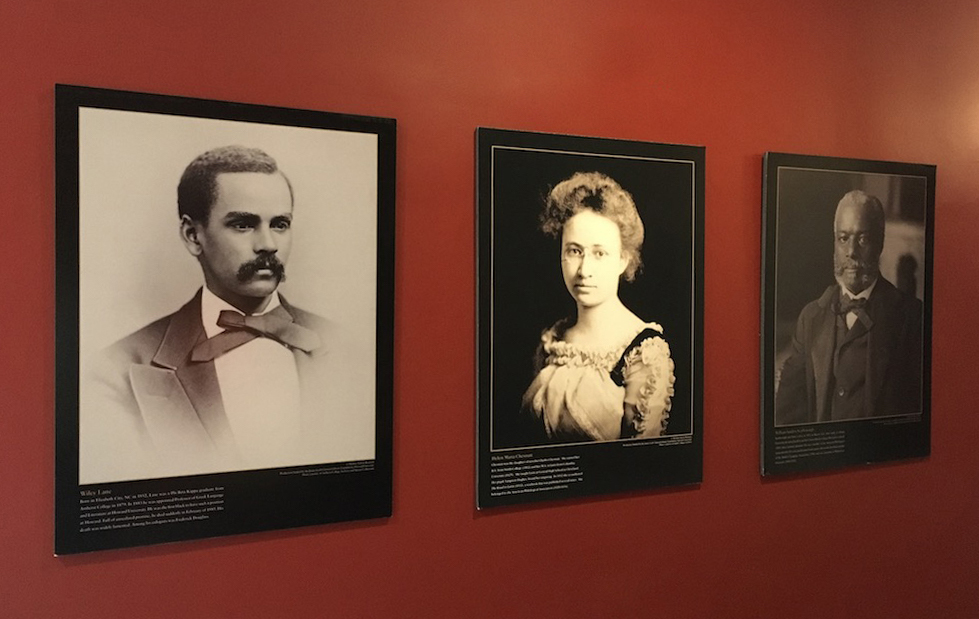An account of Michele Valerie Ronnick’s talk at the Center for Hellenic Studies on April 27, 2018
Article written by Cyerra Haywood, Howard University
At the 1996 American Philological Association meeting, Michele Ronnick coined the term “Classica Africana” based on the 1984 book Classica Americana by Meyer Reinhold. Left out of Reinhold’s book were the contributions that black scholars made to the field of classics. The fifteen scholars who are highlighted in Ronnick’s portrait exhibition “embraced the study of the classics in the face of tremendous adversity” and were leaders in education; yet, over time, their work and contributions to the education of people of African descent were largely forgotten as Booker T. Washington and W.E.B. Du Bois became the face of the struggle for the education of black people in the United States.
Ronnick’s lecture about the exhibition and the history of the black classical tradition discussed the debate over education, specifically whether people of African descent should take a path of economic liberation through technical training or pursue a classically-based liberal arts education, and for those who chose the latter, the adversity that these scholars encountered as they pursued the study of classics.

The best-known figure in the exhibition is the black classicist William Sanders Scarborough. Ronnick has thoroughly studied Scarborough, and she has published his works and his autobiography [1]. The lecture focused on Scarborough’s point that “a free society is not based on the foundation of laws alone but also upon full access to the highest elements of culture and learning.” This sentiment summarizes the attitude of many black classicists at the time, who wanted to learn everything about the classical tradition and who chose “the thoughtful, cultured, and ultimately ‘impractical’ path of the classically-based liberal arts curriculum” instead of “the utilitarian path of technical and manual training.” Since these paths were frequently treated as though they were mutually exclusive, these scholars were often not understood; their presence was unsettling to many; they were marginalized, closely scrutinized, and even pronounced fraudulent; and their claims to learning were not fully regarded. Despite these challenges and social ostracization, they still pursued and argued for the study of “the humanizing literature of classical antiquity.”

The debate over education continues today. Just like during the founding of the New Republic when there was an argument about whether or not classical languages should be studied, today there is diminished emphasis on the study of the classical tradition of the liberal arts. Although many historically black colleges and universities (HBCUs) initially provided a classical education for freed African Americans, the sole surviving classics department within an HBCU is found at Howard University.
Ronnick ended the talk by urging members of the audience and those watching to pursue “the recovery of analysis of the historical record” and “the analysis of classical themes and ideas as they appear in art and literature created by people of African descent.” She emphasized that any classical reference that appears in the work of people of African descent is not accidental, since the classical tradition was an integral part of the education of people of African descent.
[1] Ronnick, M., (ed) (2005) The Autobiography of William Sanders Scarborough: An American Journey from Slavery to Scholarship. Detroit: Wayne State University Press; Ronnick, M., (ed) (2006) The Works of William Sanders Scarborough: Black Classicist and Race Leader. Oxford; New York: Oxford University Press.
